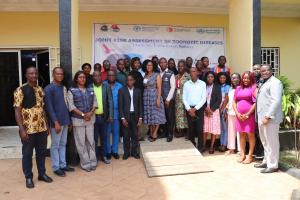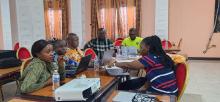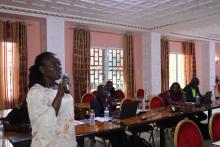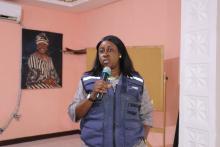Addressing Health Emergencies Using the One Health Approach: Insights from Liberia's Joint Risk Assessment of Three Prioritized Zoonotic Diseases.
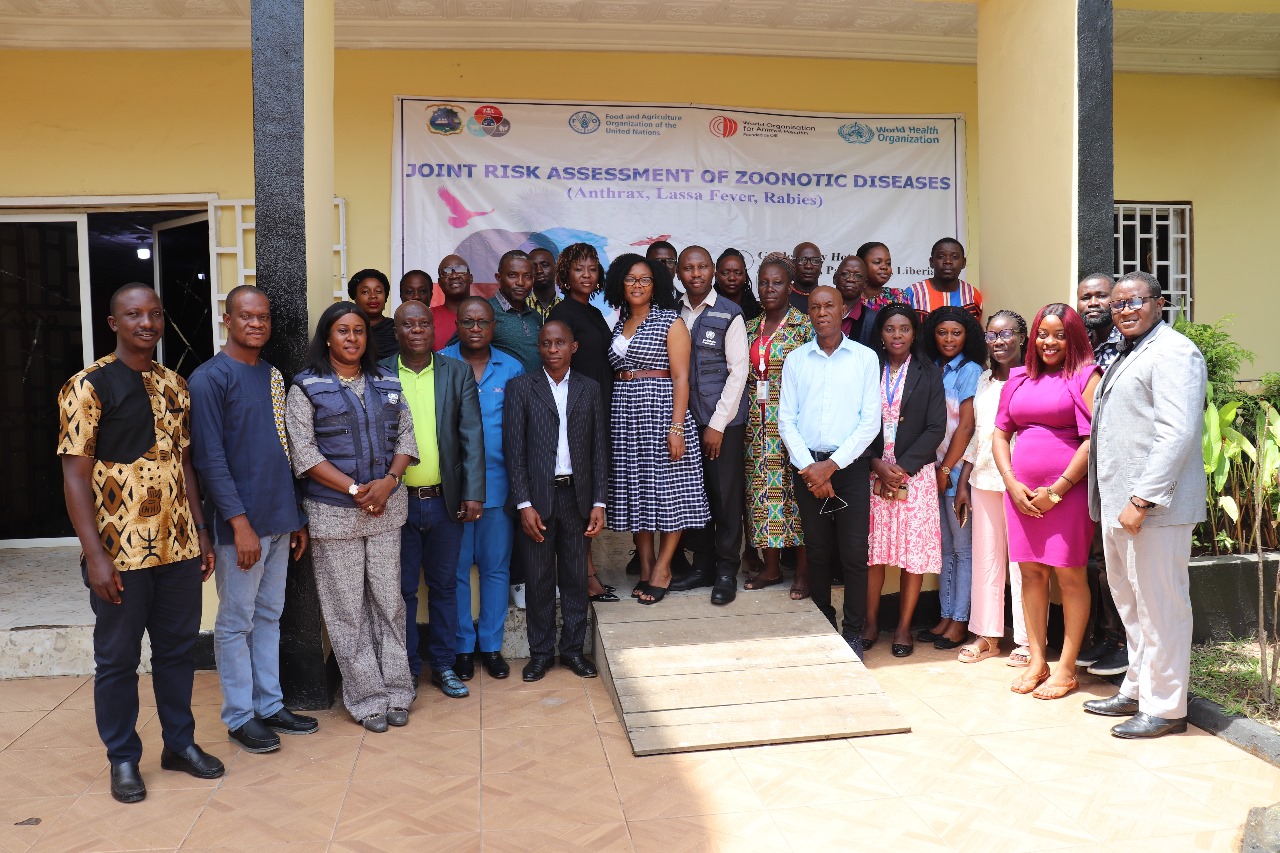
Monrovia, April 12, Using a One Health approach, the Ministry of Health, Ministry of Agriculture, National Public Health Institute of Liberia (NPHIL), and the Environmental Protection Agency (EPA) of Liberia have successfully concluded a Joint Risk Assessment (JRA) for three prioritized public health diseases: Lassa fever, Rabies, and Anthrax.
The JRA was conducted by a multi-sectoral team in the One Health context with technical and financial support from the World Health Organization (WHO), Food and Agriculture Organization of the United Nations (FAO) country and regional offices. The exercise involved data collection and collation from eight counties that share international borders and a five-day national-level meeting conducted from April 9 to April 13, 2024, utilizing a qualitative and quantitative structured ten-step JRA process of the tripartite Joint Risk Assessment Operational Tool (JRA OT) developed by WHO, FAO, and the World Organization for Animal Health (OIE).Despite major investments in recent years to strengthen epidemics preparedness and response core capacities in Liberia, the country remains vulnerable to infectious disease threats that tend to have far-reaching social and economic impacts. These three diseases were specifically chosen due to their severe implications on public health and their prevalence in Liberia and the Africa region.
This assessment involved government ministries, agencies, and partners involved in zoonotic disease outbreak surveillance, detection, response, and control, leveraging the expertise of professionals, including epidemiologists, veterinarians, environmental specialists, policymakers, and partners’ representatives to facilitate joint identification, assessment, management, and reduction of risks from zoonotic diseases, benefiting from coordination and collaboration between ministries and other agencies at the Human-Animal and Environment interface.
During this exercise, participants recommended strengthening regular joint risk analysis and communication, development, and implementation of disease-specific contingency plans for Lassa fever, Rabies, and Anthrax, and identified the need for improvements in disease surveillance, data sharing for prioritized zoonotic diseases, enhancements of laboratory testing, improving coordination mechanisms for joint epidemics preparedness and response among the human, animal, and environment sectors to strengthen the mechanisms necessary to effectively detect and respond to emerging health threats, thereby enhancing the country’s health security.
In an opening remark Liberia’s Chief Veterinary officer (CVO) Mr. Garmie Voupawoe, expressed his appreciation for being a part of the assessment and emphasized that involving all relevant sectors in technical risk assessment helps to jointly identify risks resulting into collective decisions that will bring out each sector contribution.
‘’There is need for continuous collaboration that will maximize our limited resources -to implement the recommended mitigation measures from this exercise and it is critical that we establish effective mechanisms for coordination and collaboration between the animal, human, and environmental health sectors for effective preparedness to emerging and re-emerging zoonotic diseases and other public health threats,’’ said the Mr. Voupawoe.
Dr. Ralph Jetoh, the National International Health Regulations (IHR) focal person and Director for the Division of Infectious Diseases and Epidemiology at the National Public Health Institute of Liberia (NPHIL), expressed in his opening remarks that jointly assessing risks allows stakeholders to take ownership of the mitigation recommendations and other ongoing interventions.
‘’We need to strengthen our collaboration among sectors at the national and sub-national level especially during preparedness and response to zoonotic disease outbreaks or events’’, said Dr. Jetoh,‘’ as mitigating the impact of endemic and emerging zoonotic diseases of public health importance requires multisectoral collaboration and interdisciplinary partnerships”, he said.
Dr. Julius Monday, WHO Health Emergency Cluster Team lead, expressed concern that health challenges at the human-animal-environment interface in Liberia are on the increase varying from zoonotic and food-borne diseases. These are posing serious threats to humans, animal and the environment; accounting for the majority of emerging and re-emerging conditions and infectious diseases in Liberia and Africa region. “Emergencies increase the demand for health services while simultaneously disrupting and undermining the systems that deliver those services, said Dr. Monday. ‘’Reducing zoonotic disease threats requires a clear understanding of where, who is at risk, when and why the risks exist’’, he said.
During the closing remarks, sector representatives appreciated the exercise, which enabled them to collectively evaluate where and why risks exist and the need to jointly implement mitigation measures to minimize their impacts.
The workshop was attended by various stakeholders, including the Government of Liberia (Forestry Development Authority (FDA), the Environmental Protection Agency (EPA), the National Public Health Institute of Liberia (NPHIL), the Ministry of Agriculture (MOA), and the Ministry of Health (MOH)), as well as partner organizations such as the Africa One Health University (AFROHUN), International Rescue Committee (IRC), Food and Agriculture Organization (FAO) Liberia country office and AFRO, World Health Organization (WHO) Liberia Country office and AFRO region, African Field Epidemiology Network (AFENET), GIZ, and Breakthrough Action. The partners committed to a One Health approach towards mitigating public health threats in Liberia.
